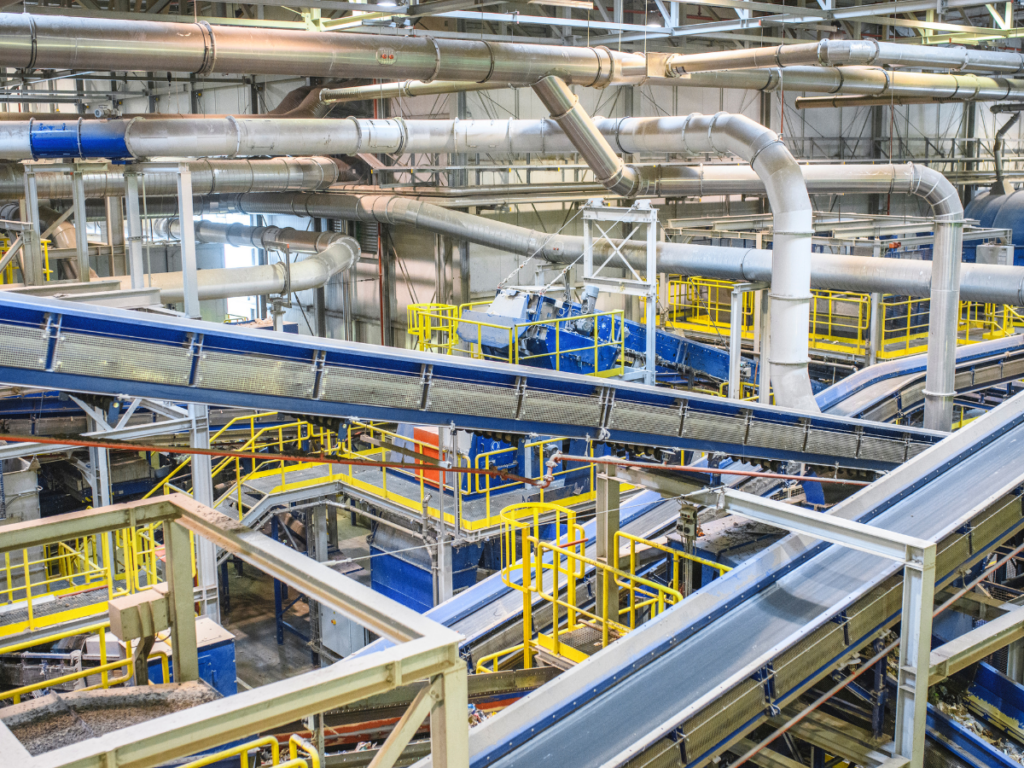Automation Promotes Minimization of Waste and Energy Optimization
Automation technologies are often installed to increase efficiency, improve product quality and offset labor shortages, but there is another compelling reason to adopt industrial automation: It promotes minimization of waste and energy optimization.
Although the industrial environment has never been considered “green” due to its high carbon footprint (some statistics say that industry accounts for about 32% of the world’s CO2 emissions), automation technologies, on their own or integrated with lean manufacturing/lean automation practices, can help turn that notion around as automation reduces industrial waste, including energy and material waste
How Lean Manufacturing and Lean Automation Support Sustainability

While not all manufacturers implement lean manufacturing and lean automation practices, the philosophy is one to heed as it strives to streamline processes and increase efficiency by eliminating waste, such as wasted time and resources.
And, the minimization of waste, specifically industrial waste, promoted by lean manufacturing and lean automation can be applied to support sustainability. Here’s how:
Lean manufacturing
Is a manufacturing methodology that focuses on maximizing productivity, value and cost effectiveness of the process via minimization of waste. Per the lean manufacturing philosophy, industrial waste examples are defined as anything that does not add value to the operation or customer. Some of the benefits of lean manufacturing include reduced lead times, lower operating costs and improved product quality. Lean manufacturing examples include reducing overproduction of a product and minimization of defects, which help eliminate overconsumption of energy and resources while reducing scrap and material usage.
Lean automation
Combines lean manufacturing examples and principles with automation technologies to optimize processes, reduce waste and improve product quality and suggests that manufacturers should automate the value-added steps in a process to encourage minimization of waste. Industrial waste examples include anything from wasted energy and natural resources to wasted materials, labor hours and inefficiencies within the process.
How Automation Promotes Minimization of Waste and Energy Optimization
As consumers increasingly desire more sustainable products and practices, manufacturers are striving to meet these demands in order to remain viable and competitive. As a matter of fact, a 2022 survey by the National Association of Manufacturers (NAM) noted that sustainability is a top manufacturing priority. The report says that 58% of manufacturers believe that sustainability is essential to remaining competitive and suggests that 68% of manufacturers plan to implement sustainability practices in their companies.
So whether a manufacturing operation is looking to embrace lean manufacturing and lean automation or simply improve their sustainability efforts, automation technologies can help achieve the goals of minimizing industrial waste and increasing energy efficiency. According to the Sustainability Project report, industrial automation is the key to addressing the energy and climate crises.
The report states: “Energy efficiency is just one part of wider digital transformation programs in which automation, energy and software optimize resource consumption (including power, fuel, water and raw materials), process design and equipment utilization. Combined, these three elements drive productivity, resource efficiency and energy efficiency.”
Here are six ways industrial automation, whether on its own or integrated with lean manufacturing and lean automation practices, allows manufacturers to reduce industrial waste:
- Industrial automation promotes energy optimization: Because automation technologies make the process more efficient, machinery and equipment are likely to operate only when needed, which minimizes idle running time and helps reduce unnecessary energy consumption, significantly reducing the carbon footprint of a facility.
- Automated machinery can be programmed for efficiency: Because operators can set machines via advanced controls to work at peak efficiency and deliver consistent results, the process and equipment will provide maximum output while optimizing energy and material usage in a way that manual operation and control cannot achieve.
- Sensors and monitoring systems identify issues: When automation is tied into sensors and monitoring systems, it identifies maintenance issues and operational trends that may increase the energy consumption of equipment. Concerns may be addressed before they continue to waste large amounts of energy, further aiding energy optimization efforts.
- Automation provides enhanced control: The same sensors and monitoring systems can identify and analyze energy-intensive production patterns and, because these technologies are tied into control systems, operators can quickly adjust the process to reduce unnecessary energy usage, allowing real-time process and energy optimization. The same real-time control can be employed to stop a production line if faulty products are being made, which greatly reduces industrial waste related to scrap and materials.
- Technology improves product quality and reduces waste: Because automation is precise and accurate when assembling, processing and packaging products, it increases product quality, which, in turn, reduces scrap and assists with goals related to minimization of waste. Further, automation technologies can be employed to inspect products for defects and, upon finding there is an issue with a batch, can alert operators to address the issue. This reduces the creation of faulty products and can often save an entire batch from being discarded, greatly eliminating industrial waste.
- Automation reduces hazards: Not only does the use of automated equipment reduce the amount of time that operators spend handling hazardous materials, but because automated technologies are so precise, they reduce the risk of hazardous material spills, minimizing waste and eliminating hazards to personnel and the environment.
Industrial automation technologies are a vital part of manufacturers’ sustainability practices and/or lean manufacturing/lean automation efforts because they make processes more efficient by optimizing energy usage and minimizing industrial waste, which is a win for the bottom line, a business’s reputation and the environment. Contact JHFOSTER today to learn how industrial automation can be leveraged to reduce your carbon footprint.
